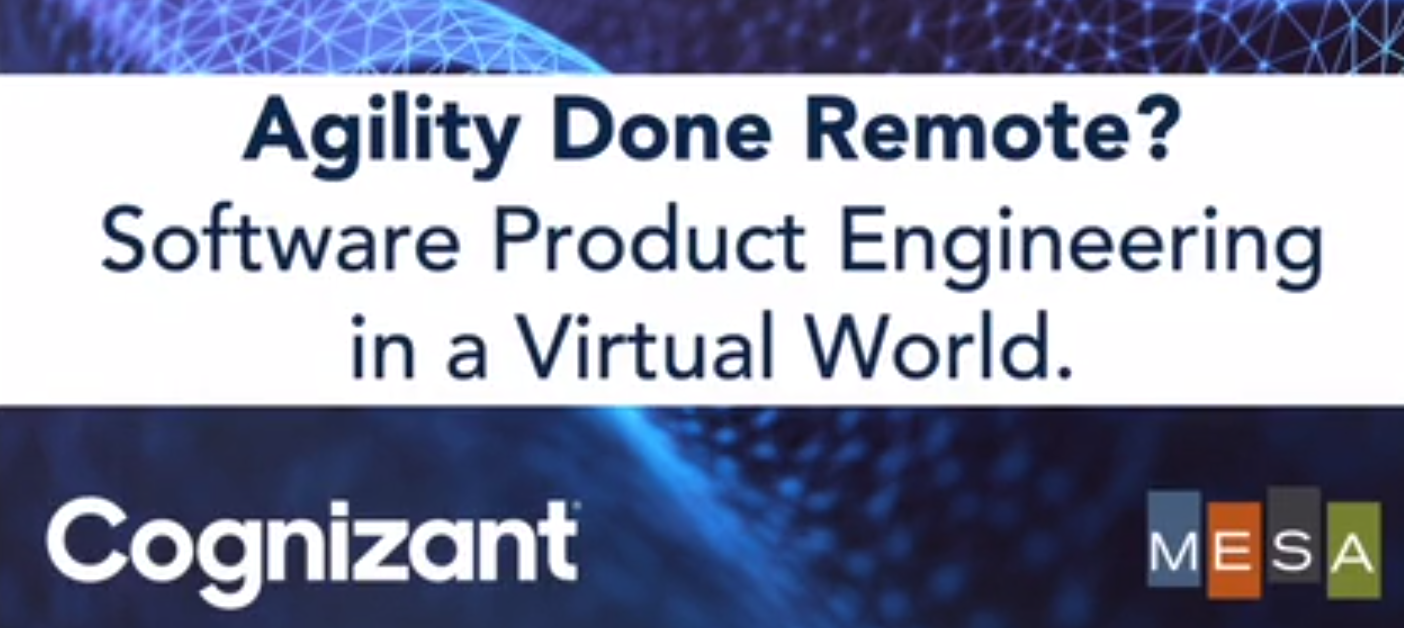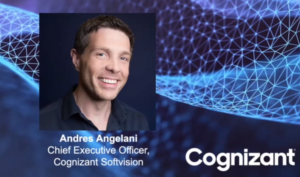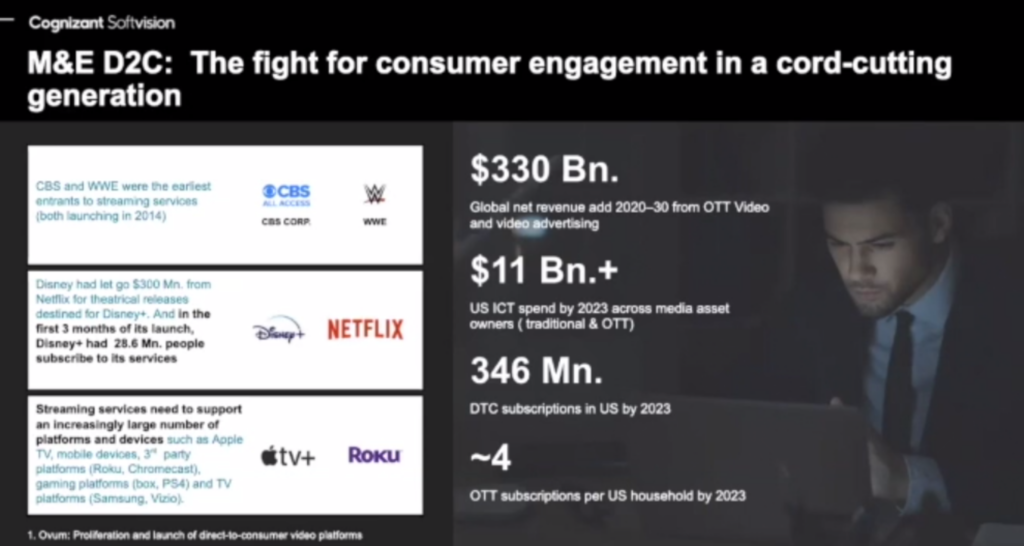M+E Daily

Cognizant Softvision Touts Solution to Keep Employees Engaged in a Remote World
Story Highlights
As if creating software wasn’t challenging enough, the COVID-19 pandemic came along and shifted everybody to a remote world where keeping employees engaged has created even more challenges, according to Andres Angelani, CEO of virtual software engineering company Cognizant Softvision.
When it comes to the over-the-top (OTT) streaming sector, “what we’re seeing is a tremendous acceleration over the last few years,” he said Aug. 5 at the start of the webinar “Agility Done Remote? Software Product Engineering in a Virtual World.”
Media companies have been required to become technology companies and making that “pivot to become a technology company” is something “that’s easier said than done,” he noted.
Building software in a fully distributed world, meanwhile, is a huge challenge also. Project failure is common and achieving modern agility becomes exponentially more difficult – especially for media and entertainment (M&E) companies where software is core to the business with OTT media offered directly to consumers.
The cultural and operational foundations that Cognizant Softvision has built into its software delivery operation are built to not only overcome those challenges, but to also transform the internal cultures of the M&E companies that it works with.
During the webinar, Angelani explored his company’s community-based model and “Virtual Pods,” and also touted its new Agile Acceleration Platform called “Game of Pods.”
The platform has been in development for about two years and is still in open beta, where it has seen a “huge degree of adoption” with the company’s existing clients, he said.
“We’re going to be ready to [have a] big market launch in January-February next year,” he added.
 Angelani pointed to a 2017 Gallup poll that said full-time work from home employees struggled more than peers at: Enjoying their work environments; engagement in their work; and having happiness with their careers.
Angelani pointed to a 2017 Gallup poll that said full-time work from home employees struggled more than peers at: Enjoying their work environments; engagement in their work; and having happiness with their careers.
The company’s Virtual Pods are teams that build software every day and communities are at the heart of its global team, he told viewers.
Engagement is one of the most challenging elements of work from home for employees today, he noted, adding: “When people are remote, in general terms, the leaders are less involved in their team’s career path.” In addition, they are “35 percent less likely to get meaningful feedback from peers when they’re remote and 30 percent less likely to get career growth input from managers,” he said.
“And that was in 2017, so imagine now,” he said, adding: “We believe it has accelerated. It’s worse” as a result of the massive shift to remote work brought on by the pandemic.
How do we make sure people are maximizing their time and tracking toward project progress amid all the at-home distractions today?
“Game of Pods” has proven to be one way to do that, Angelani said, noting it is a game that it had been developing for a while and is helping a lot during the pandemic for those teams using it.
“Good performance is tracked and rewarded with hundreds of badges and trophies,” he noted. Also, “peers recognize one another and celebrate good work and social motivation keeps teams engaged,” he said.
 Communities are helping with engagement and serving as the “connective thread for creating the culture and engaging team members in something beyond the day-to-day project work — and that’s critical for sustainable project health” and also for retention, he said, adding: “There is a correlation between how many people you can keep to the results of your product over a long time and the experience that product delivers.”
Communities are helping with engagement and serving as the “connective thread for creating the culture and engaging team members in something beyond the day-to-day project work — and that’s critical for sustainable project health” and also for retention, he said, adding: “There is a correlation between how many people you can keep to the results of your product over a long time and the experience that product delivers.”
The company is finding that its communities “really enable” a sense of work culture and “great culture is the key to adoption and sustainability of virtual environments,” he said, predicting: “Companies that do this right will thrive really in the coming decade.”
Communication plays a key role also, along with security, which he noted is something “we have to take extremely seriously especially because we’re creating” intellectual property.
“Security, alongside communication, community and engagement forms our Virtual Pods’ delivery model,” he said.
He went on to provide a case study of a Virtual Pod whose team members made note of the challenges involved when shifting to remote work including it being hard to find privacy. The team, which had people who were working fully remote even before COVID-19, was finding it easier to overcome the challenges of remote work in the pandemic via initiatives that included virtual coffee and other meetings with the community multiple times a week, keeping leadership involved, and finding time to virtually do fun stuff together that didn’t involve work.
To view the webinar, click here.









